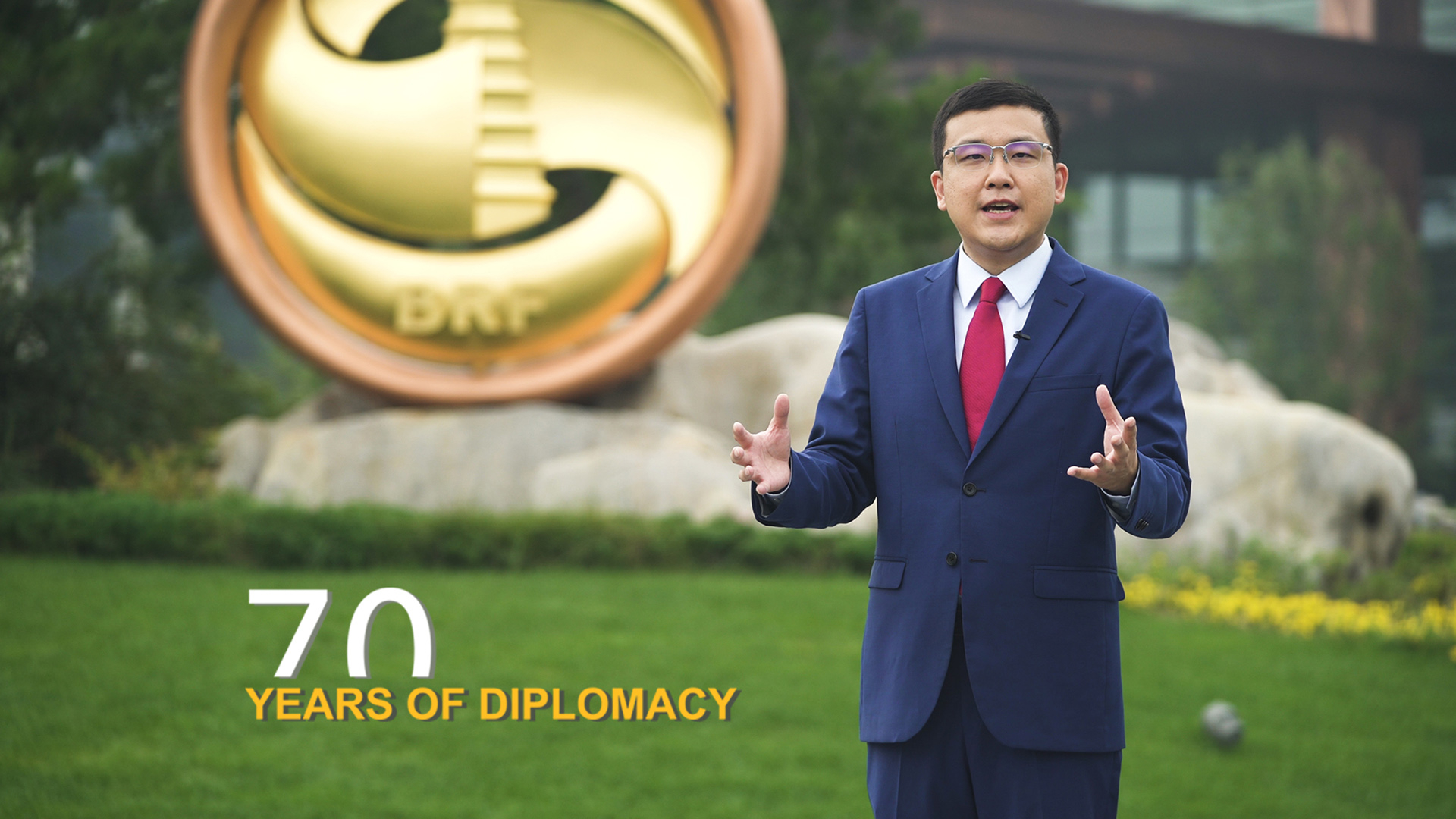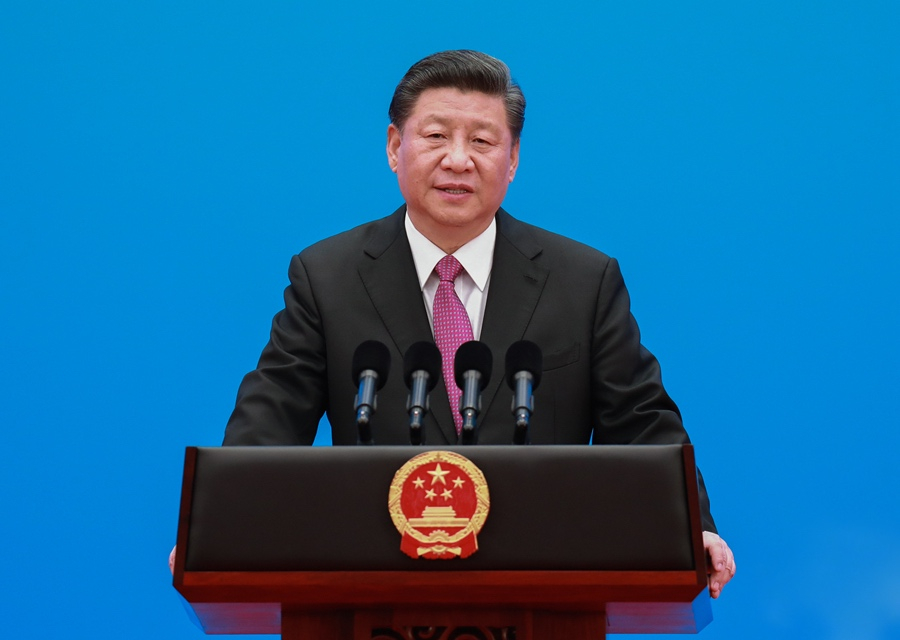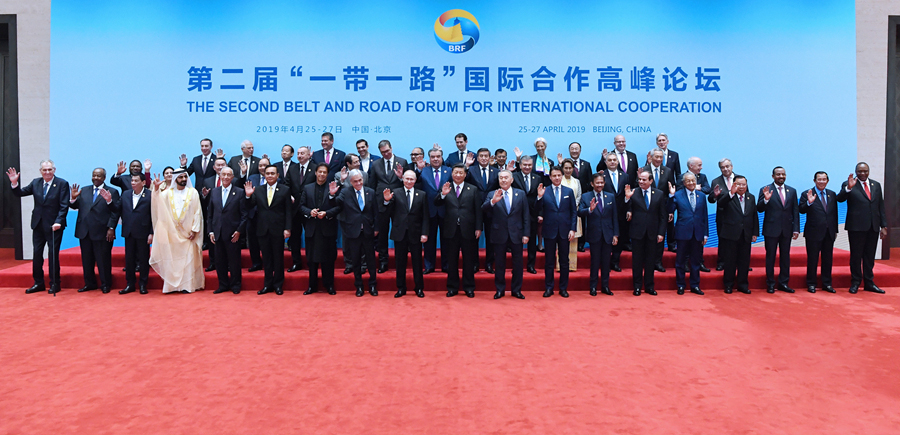04:27

The Belt and Road Initiative (BRI) is an economic belt connecting routes across the sea and land and an initiative linking China and the world.
"To make our Eurasian countries enjoy closer economic ties, deeper cooperation and wider development space, we can take an innovative cooperation mode – to jointly build the Silk Road Economic Belt," proposed Chinese President Xi Jinping during a speech on September 8, 2013 at the University of Nazarbayev in Kazakhstan.
After six years of development, the initiative is in full swing and China is at the center of it. Over 100 countries and international organizations are supporting it, with nearly 120 agreements already signed. In 2017, the total imports and exports between China and its Belt and Road partners hit over 1.4 trillion U.S. dollars, surging by 13.4 percent year on year.

Chinese President Xi speaks at the 2nd Belt and Road Forum for International Cooperation in Beijing, April 26, 2019. /Xinhua Photo
Chinese President Xi speaks at the 2nd Belt and Road Forum for International Cooperation in Beijing, April 26, 2019. /Xinhua Photo
Asian countries are China's largest trading partners under the Belt and Road Initiative. In 2017, trade volume between 25 Asian countries and China reached over 800 billion U.S. dollars, accounting for a third of China's total foreign trade.
One framework under the initiative is the China-Pakistan Economic Corridor — a series of infrastructure projects worth a staggering 46 billion U.S. dollars. Pakistan's Ambassador to China Masood Khalid has said, "After two years of hard work, we reached a number of agreements of cooperation, the projects are now being actualized."
In realizing the future of free and open trade, the Belt and Road Initiative aims to open up more ports and create railway links. Since 2017, more than 1,000 trains on the China-Europe Railway Express have transported goods between China and 108 cities in 20 European countries.
In 2019, Italy became the first G7 country to sign on to the initiative. Mei Zhaorong, former Chinese ambassador to Germany said, "Many central and Eastern European countries are very interested in the Belt and Road Initiative, because they need to improve their infrastructure as well as to boost their economic development. I know that Germany was one of the first member countries to participate in the Asian Infrastructure Investment Bank."

The second Belt and Road Forum for International Cooperation opens in Beijing, April 26, 2019. /Xinhua Photo
The second Belt and Road Forum for International Cooperation opens in Beijing, April 26, 2019. /Xinhua Photo
Africa is also a major part of this plan. In 2018, trade volume between China and African countries hit nearly 200 billion U.S. dollars. For nine years in a row, China has been Africa's largest trading partner.
Nations beyond the Pacific have also expressed interest in joining the Belt and Road Initiative. Panama is keen on joining the initiative and Chile has said the strategy is in line with its own concept of development.
"It's important that all nations should share the same concept of building a community for the future, one of interconnection and intercommunication is to promote the Belt and Road Initiative," said former Chilean president Michelle Bachelet.
In April 2019, China held its second Belt and Road Forum for International Cooperation in Beijing. President Xi was joined by 37 world leaders and over 1,500 representatives from over 130 countries.
President Xi said at the conference, "Going ahead, we should focus on priorities and project execution, move forward with results-oriented implementation, just like an architect refining the blueprint, and jointly promote high-quality Belt and Road cooperation. We need to be guided by the principle of extensive consultation, joint contribution and shared benefits. We need to act in the spirit of multilateralism. We may engage in bilateral, trilateral and multilateral cooperation."
It was at this meeting that President Xi outlined China's future emphasis for the initiative, which includes industrial development, financial integration and the building of infrastructure. He also said China will continue to act responsibly in the international arena, while building a community of a shared future for mankind.